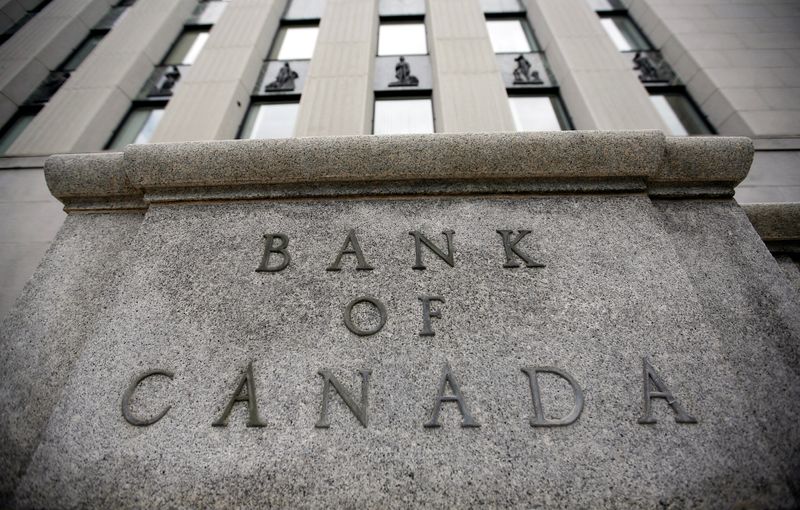By Promit Mukherjee and David Ljunggren
OTTAWA (Reuters) -Canadian firms have begun to expect improved conditions after almost two years of deterioration, the Bank of Canada (BoC) said on Monday, prompting traders to trim their bets on a rate cut in June.
Fewer firms are planning for a recession in the coming 12 months but they expect demand to stay subdued over the next year, the BoC's first quarter survey found.
The number who expect inflation to be above 3% for the next two years has also fallen, and for the first time in four quarters, firms expect sales to increase, it said.
Analysts and economists say the survey - which contains some of the most recent data on the economy - will help them judge when the Bank of Canada might start cutting interest rates from their current 22-year high of 5%.
"The Bank of Canada won’t be popping any champagne bottles after seeing these results, but there’s nothing in these surveys that should keep them from cutting rates around the middle of the year," Royce Mendes, head of macro strategy for Desjardins Group, said in a note.
The Canadian dollar deepened losses after the survey results to trade down 0.27% to 1.3573 against the U.S. dollar. The yields on the Canadian two-year government bond rose by 9.4 basis points to 4.281%.
Money markets lowered their bets on a June rate cut to around 51% from roughly 55% before the survey results and no longer fully price in a 25 basis point rate cut in July.
The Bank of Canada will release updated projections on April 10 along with the latest interest rate policy decision that is expected to keep the rates on hold.
The Bank, which has a 2% inflation target, says it might be able to start reducing rates this year but declines to give a timeline. Inflation hit an eight-month low of 2.8% in February.
The business outlook indicator - a broad gauge of how firms feel about their prospects - improved to -2.42 in the first quarter from -3.09 in the fourth quarter.
"Firms reported that business conditions improved slightly in the first quarter. The uptick in sentiment follows nearly two years of deterioration and is reported widely across all regions, sectors and firm sizes," the survey said.
Some 27% of firms expect Canada to be in a recession over the next year, down from 38% in the fourth quarter, while 40% thought inflation would stay above 3% for the next two years, down from 54%.
The survey found fewer firms planned to make unusually large or frequent price increases over the next 12 months.
"Firms reported that demand remains weak overall. But there are some signs of returning optimism," said the survey, citing overall conditions, sales outlooks and employment intentions.
February's inflation data and a rebound in gross domestic product in January are sending mixed signals to the market on how high rates might affect the economy.
Wage growth, which the BoC singles out as a reason for sticky inflation, will be slower than in the last year, but is still likely to be high. Labor shortages continue to decline, the survey said.

"While policymakers can take some solace in the fact that businesses and consumers are becoming more upbeat, they need to remain on guard about recession risks," Mendes said in his note.
A separate central bank survey of consumer expectations showed Canadians believe inflation has slowed and do not expect more rate hikes this year.